
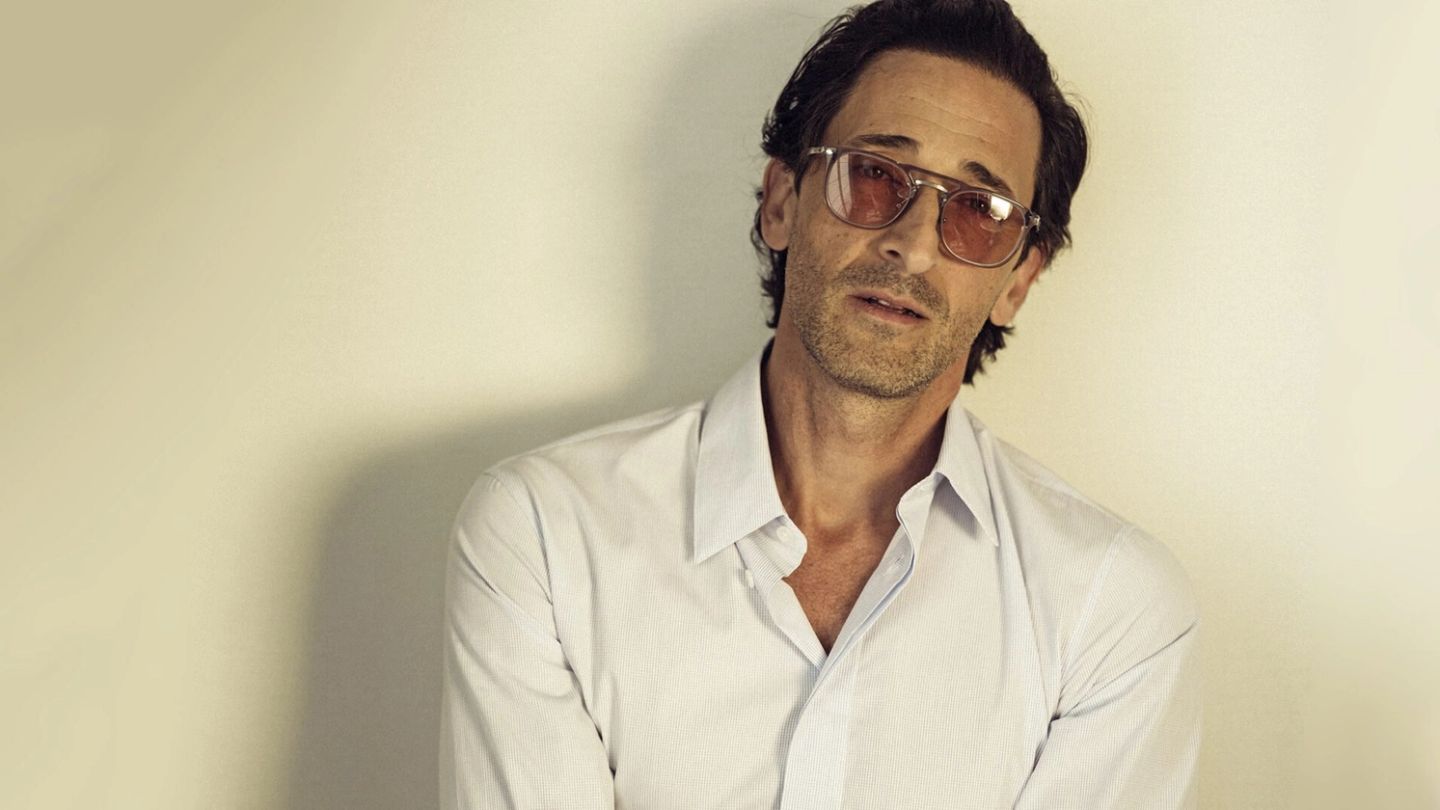
Words: Jonathan Wells
Photography: Julien Mignot
When Adrien Brody was young — growing up in his noisy, native New York City — he collected stray dogs. His mother, the renowned photographer Sylvia Plachy, did the same, and would often return to the family home in Queens with new, needy animals she had saved from the streets.
One of Brody’s first dogs was a stray he named ‘Beethoven’ — “before there was a Beethoven, y’know, the movie about the dog?”. He’d found the hound outside his dentists office, and it had followed him home.
It makes sense, as Brody is something of a stray himself. Less an outsider; more an outlier, he’s a man whose nurturing nature has had something of a steer his career. He’s long had a keen eye for potential, and has approached, supported and surprised in projects many other actors may play safe by avoiding. Yet, in straying from the road more often travelled, Brody has assembled a body of work more meaningful and memorable than his contemporaries.
Under a recent post on actor’s Instagram page, one of the most highly ‘liked’ comments puts it best: “Mr Brody never repeats anything in his work”. It sounds like strange praise, especially in a world that turns on the block-busting power of sequels and interconnectedness. But, for the ever-deferential Brody, this is validation.
“I saw that comment, too,” says the actor, down the line from his “always home” of New York City. “I appreciated it. I don’t know if I never repeat things, though. We all reach into the well, you know? To deliver what we can. But I do consciously try to have a diverse body of work. That’s been part of the joy of it — this quest.”
It’s a quest that the actor’s fans and followers are keenly keeping track of — with a slew of similar comments piling up beneath Brody’s posts. “Congratulations on Mr Brody’s second heyday!” says one. “Dude,” reads another, “you are doing so many projects recently”. It’s true. Brody is rounding up roles today like he did dogs in his youth. (That’s not to say his compassion for creatures has fallen by the wayside; you’ll also find photographs of the actor with cats, rats, bison, horses and even his latest rescue dog, ‘Chicken’, on his social media feeds).
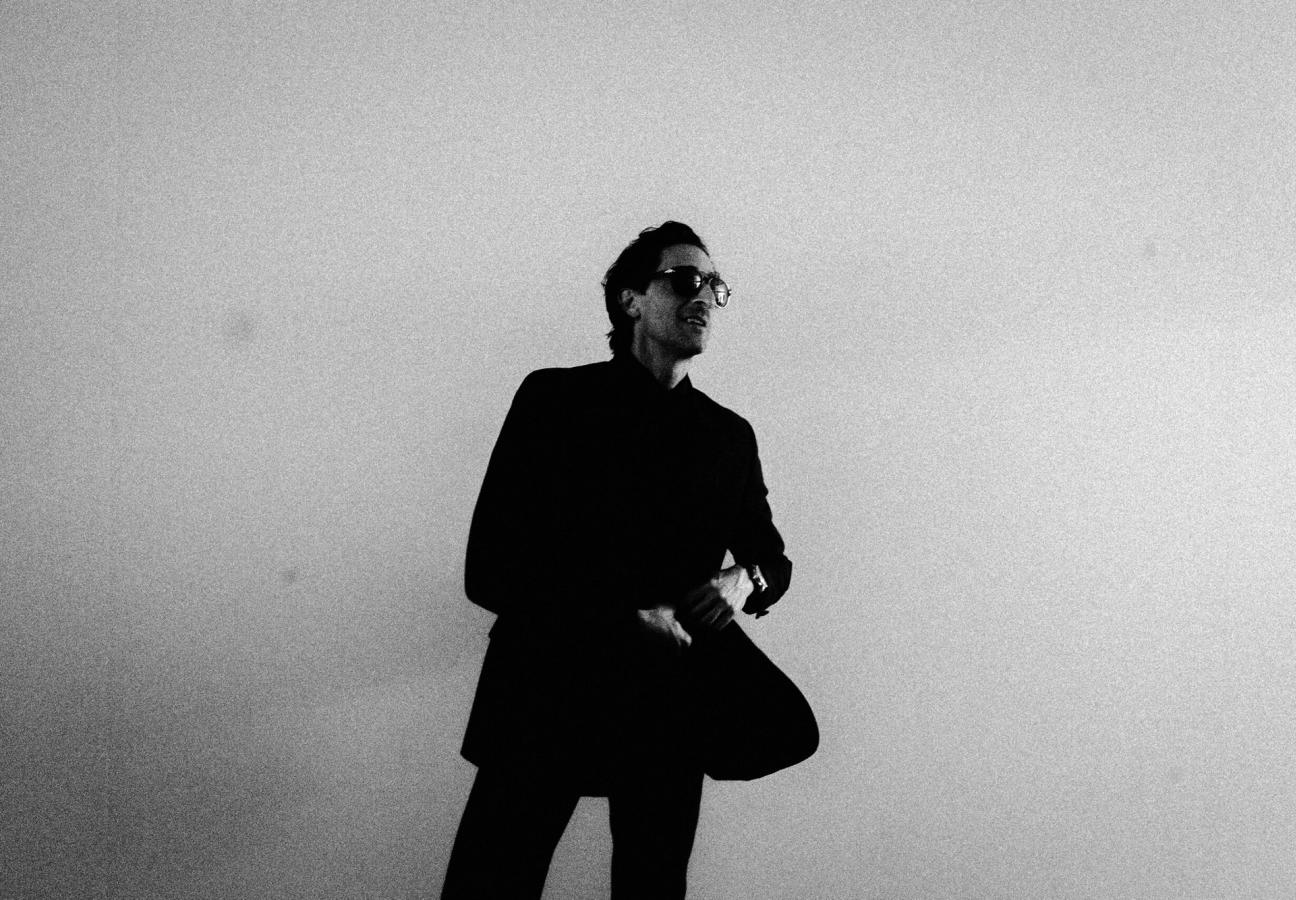
“I’ve always loved animals,” says the actor. “I think I was born that way. Some of it comes through osmosis. If you’re raised with a respect for animals, and you’re made aware of the life in a blade of grass, then that perspective will blossom within you. But some of it comes genetically — my mother is particularly attuned to all living beings, especially those in need.”
Both of Brody’s parents are kind, fiercely talented artists. His public schoolteacher father, Elliot, may have retired from teaching — but he remains a remarkable painter; entirely self-taught and with the ability to “forge an old master’s painting”. And Brody’s mother, who was one of the youngest photographers ever to have her work acquired by the Museum of Modern Art (and was honoured with a Guggenheim Fellowship in the 1970s), is still studied by photography students today.
“She just is an artist,” says Brody. “You know? Everything about her is creative. And, because I grew up in this very creative background, I’ve also painted since I was a child. My parents just gave me the tools and the space.
“As soon as we’re done here,” he adds, “I’ve got a lot of work to do. I’m jumping straight back into my studio to paint. I’ve been stooped over doing it all day — my back is killing me. But I’ve got to keep working, keep painting. Because it’s become such a big part of my life. It’s so wonderful.”
“We all reach into the well, you know? To deliver what we can…”
The words, occasionally mumbled, softly tumble from Brody. From anyone else, rationalising an activity as a ‘calling’ or ‘compulsion’ may come off as contrived. But not from the actor. He speaks of his painting less as a passion or a pastime and more as a companion; an artistic sounding board that supplements — and often even supersedes — his screen work.
“I feel like neither fully quenches the thirst entirely, and therefore I need both,” he considers. “It’s a little like living between New York and L.A. New York always feels like I’m coming home, but it’s sometimes nice to get some space in L.A. Because acting, while it’s such a rewarding process, is not something that you can go off and do on your own entirely. It’s a much bigger, collaborative work — and it requires a lot more people to lift you up and make you great.
“Painting gives me this freedom to just go and explore ideas. It’s somewhat like meditation. You complete something, you’re pushing paint around, you’re playing with colours, textures and ideas. You make mistakes and you learn. You develop new techniques from mistakes. You find a language, a way of communicating and expressing emotion and feelings and humour and anger and frustration, all through painted imagery, or manipulating visual elements. And that’s very satisfying.”
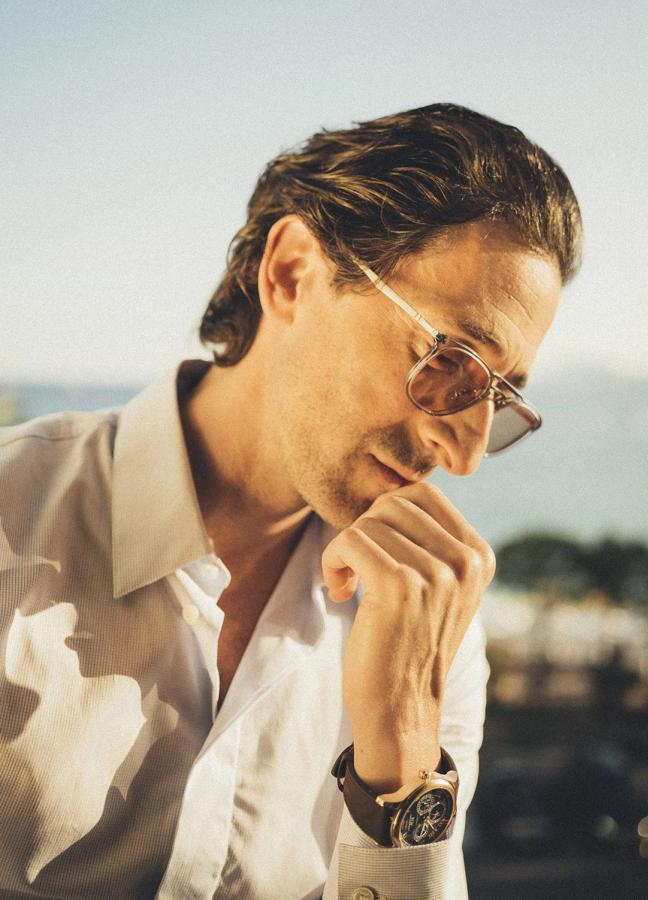
The escape of painting proved most invaluable to Brody in early 2021. From February to April, the actor found himself locked down in London, having travelled to Britain to shoot See How They Run, a new mystery-comedy from director Tom George. The film stars Brody as a Hollywood producer attempting to adapt a West End play for the big screen. But the actor will forever remember the pandemic-punctuated shoot for his self-isolated, socially-distant studio time.
“You know, I’m not sure it’ll make the cut, but a piece of mine might actually appear in the film,” he reveals. “I’d been painting during the pandemic, and I showed Tom [George] one of the pieces, which is kind of a theatrical mask — a dramatic persona. I thought it might look really great in the storeroom in the film or something, and they put it in. So we’ll see, it might be visible!”
It’s not the first time Brody’s art has had a brush with his film work. Wes Anderson’s episodic triumph, The French Dispatch, saw the actor play a sharply-suited art dealer embroiled, obsessed and incarcerated with a painter played by a beardy Benicio de Toro.
“It was an amazing film,” says Brody. “And world. The actual painter who created the works of Benicio’s character was Tilda Swinton’s partner [Swinton also appears in the film, as a writer for the titular newspaper]. He’s an amazing painter, a wonderful artist. I’ve known him for years, and those works are actually really great; really inspired.”
Brody is deeply impressed by the work of others — not least his mother’s “visually poetic, haunting and compositionally exquisite” photography. In fact, of the art forms that interest but have so far eluded him, the actor says he’d most like to commit something to film, as a director.
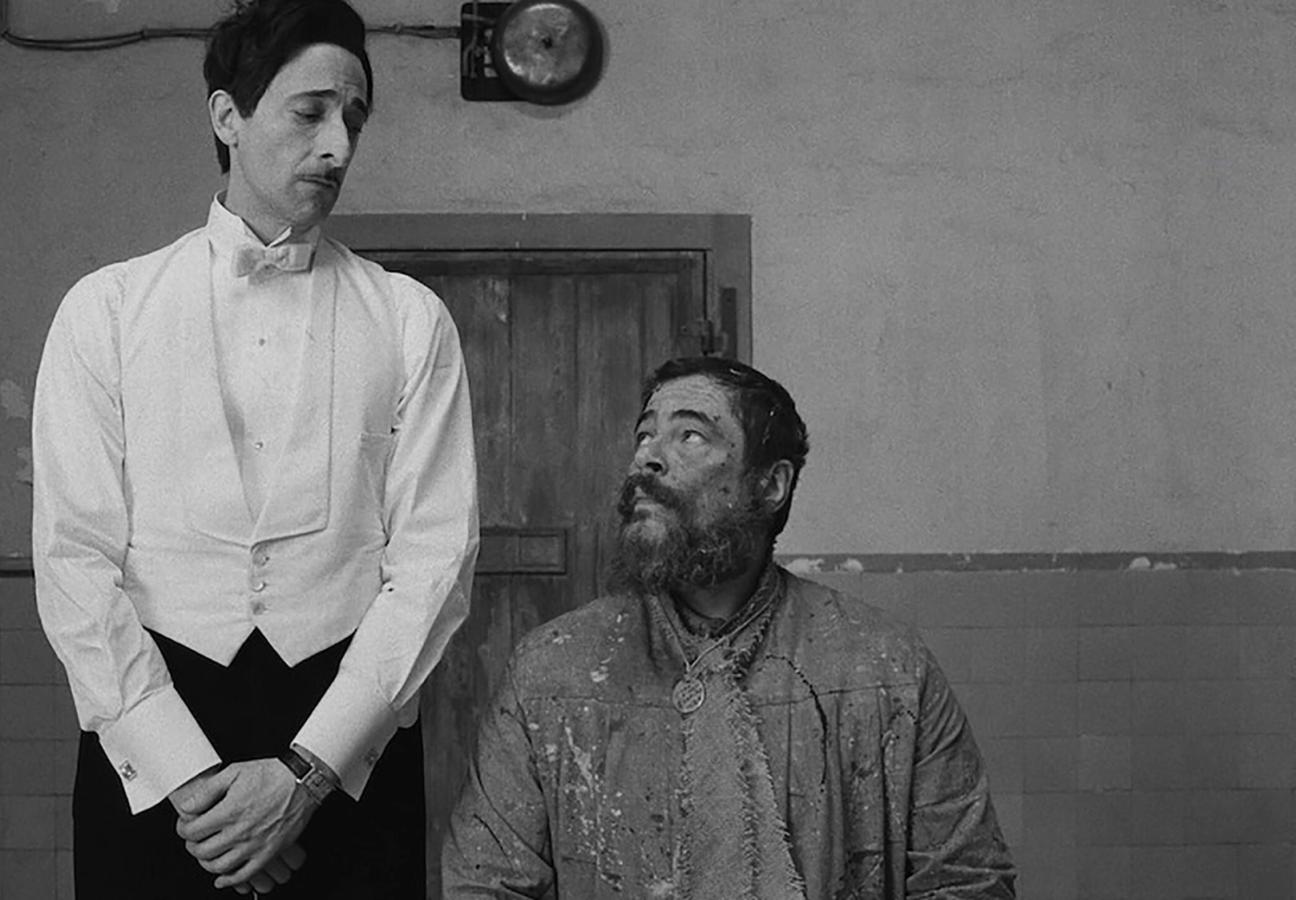
The French Dispatch (2021)
“I’ve spent a lifetime working with brilliant filmmakers. And I know how to communicate with actors. And I know the intricacies of creating a film and delivering a film. And I think, when the time is right, I’d like to explore that as a creative endeavour.”
But that time, Brody admits, is not now. The actor has “his hands pretty full right now”. And, for fear of underselling himself, his cast or his crew on his directorial debut, he concedes that this isn’t the right time to step behind the camera.
“I will find the time one day, and the space. It’ll be very exciting for me, and something that I would love to share with people. I feel like it’s responsibility of mine, almost. Because I love acting, but — as an actor — I’m just the vessel. I’m interpreting others’ work and expectations. And I have my own. I’ve got to live up to my own expectations at some point — I’ve just got to find the time to commit. Because that’s a several-year endeavour.”
And, as those countless Instagram comments point out, Brody is having a bumper year. The actor’s current list of projects is sprawling and ambitious, with few of his upcoming releases as hotly-anticipated as Clean — a blood-soaked, gritty thriller that will stab, shoot and snarl its way onto screens this coming January.
It’s a personal project for Brody. He’d had elements for the story swirling around his head for close to a decade, but admits that he lacked the confidence to get started. He needed a director to nudge him in the right direction, and turned to Paul Solet (with whom he created 2017’s Bullet Head) to help him draft the script. The story follows Brody as a “deeply flawed protagonist” who seeks moral redemption by saving a young girl from a gang. But it wasn’t just acting and writing Brody brought to the production — he also scored the film.
“You might not know,” says the actor, humility still in-tact, “but I make music. I’ve been sequencing and composing music, beats and tracks since I was 19 or 20. And I finally did a cohesive work with them by scoring Clean. It was a really interesting artistic endeavour because it’s another element, another form of expression that further invites you into the emotional space of a character who ultimately came from me.
“And marrying the two was such an interesting thing,” he adds, “which I never really dreamed of when I started making hip-hop beats in my bedroom when I was 20. I didn’t see how, I just made it because it was a fun creative thing to do while I was waiting for a meaningful audition.”
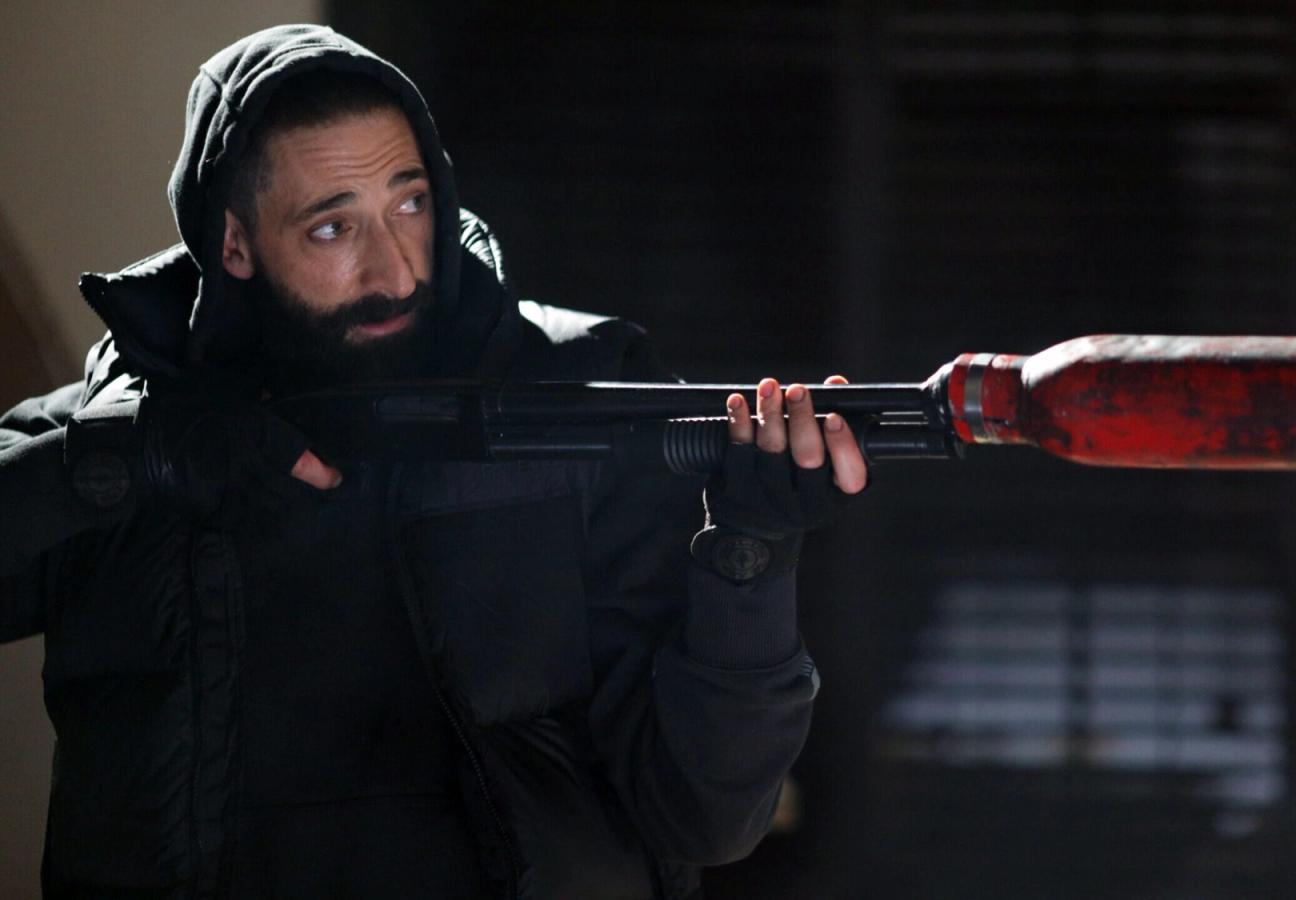
Clean (2022)
Brody can’t read music — despite his Oscar-winning turn as Władysław Szpilman in 2002’s The Pianist. (It must be said, at this point, how much it says about an actor that their Academy Award doesn’t crop up until almost an hour into the interview). But his ‘parlour trick’, in Brody’s own words, was that he could once sit at a piano and play, from muscle memory alone, minute after minute of Chopin’s ‘Ballades & Nocturnes’.
“It has dwindled with my memory,” he admits, “but I used to be able to sit down and look like a proper, classically trained pianist. But I’d just memorised elements of that for the film — I wish I’d studied more.”
Clean, then, is something of a redemption — an arc mirrored in Brody’s character. As a reformed killer forced to reconcile with the violence of his past, the film is the actor’s response to action franchises fronted by squeaky clean characters. It’s a grungy, unapologetic acknowledgement that every punch doesn’t have to land, and that real scraps and scrapes are never as tightly choreographed as we seen on screen.
“People are flawed,” says Brody, “and sometimes that’s underrepresented in the protagonist of a film. Oftentimes, the great role, when you look at character actors, is the supporting character. They can be far more flawed. The villain, also, is more flawed that the hero. But that’s the sacrifice of the complexity of the heroic character — the person you’re manipulated into rooting for.
“They do everything ‘quite right’,” he continues. “They walk the dog, love their children, they’re charming as hell and, in fights, they happen to find the right weapon or duck just in time. Of course, there’s a suspension of belief, which is part of the fun, but why not just make that person more complex and more nuanced? In life, I have to work against my own flaws — it’s part of growing and living. We make mistakes and try to do better and prevail. For me, that is a heroic character.”
Midnight in Paris (2011)
Peaky Blinders (2017)
The Pianist (2002)
Brody’s career has been eclectic and exciting. He’s starred in Peter Jackson’s King Kong, Woody Allen’s Midnight in Paris and the BBC’s Peaky Blinders. But, in recent years, his roles have diverged more noticeably. From The French Dispatch to Clean, his film choices pinball between genres. And, for the first time in his career, television is taking a leading role. Next year, a new HBO show, Winning Time: The Rise of the Lakers Dynasty, will see Brody play iconic basketball coach Pat Riley. In November, he even guest-starred in Succession — the acclaimed, acerbic comedy-drama from the same network.
“I love Succession,” laughs Brody. “It’s one of the best shows out there. It’s an amazing achievement, with the calibre of the work across the board. It’s such a pleasure that they asked me to be a part of it. Adam McKay also created this show about the Lakers, and Succession was just a remarkable bonus. I mentioned I loved the show and they said there was a part I would be good for. And it was such fun. Brian Cox is just an amazing force of nature, and I have a lot of admiration for everyone involved.”
McKay’s Winning Time looks to be as big a hit as Succession. Starring John C. Reilly as Jerry Buss and newcomer Quincy Isaiah as Magic Johnson, the show is based on a best-selling book written by Jeff Pearlman. Playing the shaggy-haired, strong-minded head coach Riley was “great fun” according to Brody, but he still encountered the usual challenges of portraying a real-life person on screen.
“It’s dwindled with my memory, but I used to look like a proper, classically trained pianist…”
“It’s a lot to step into another person’s shoes,” the actor acknowledges, “but representing Szpilman [in The Pianist] is still, I think, the biggest challenge I’ve had in my professional life. Houdini [who Brody played in a 2014 miniseries for the History Channel] was someone I also grew up fascinated with. Really. Since I was a little child I was fascinated with Houdini. He was superhuman.
“But I think the beauty of it is that you learn so much about an individual’s life by having to become them. There’s always so much that you never really knew, even if you were a fan. I’ve learned so much about Pat Riley, it’s amazing. His vast transformation to become a really important and heroic figure in the sport. His lifetime commitment to that game. The many trials and tribulations that he overcame. And, of course, if someone’s still around, it’s hard to live up to another person’s expectations — no matter how committed you are.”
In 2022, Brody will take on yet another real-life role, in pseudo-biopic Blonde; that of playwright Arthur Miller alongside Ana de Armas’ Marilyn Monroe. This role, however, offered more creative freedom than either Pat Riley or The Pianist, the actor says. Directed by Andrew Dominik, the film is less a direct retelling of Norma Jeane’s life; more of an interpretation.
“But that’s mostly the way,” says the actor. “Like this version of Arthur Miller isn’t necessarily Arthur Miller. He’s gone through many lenses and filters before he even gets to me and my interpretation begins. So it’s not me representing the man, it’s a rendition that I’m asked to portray. It’s very different.”
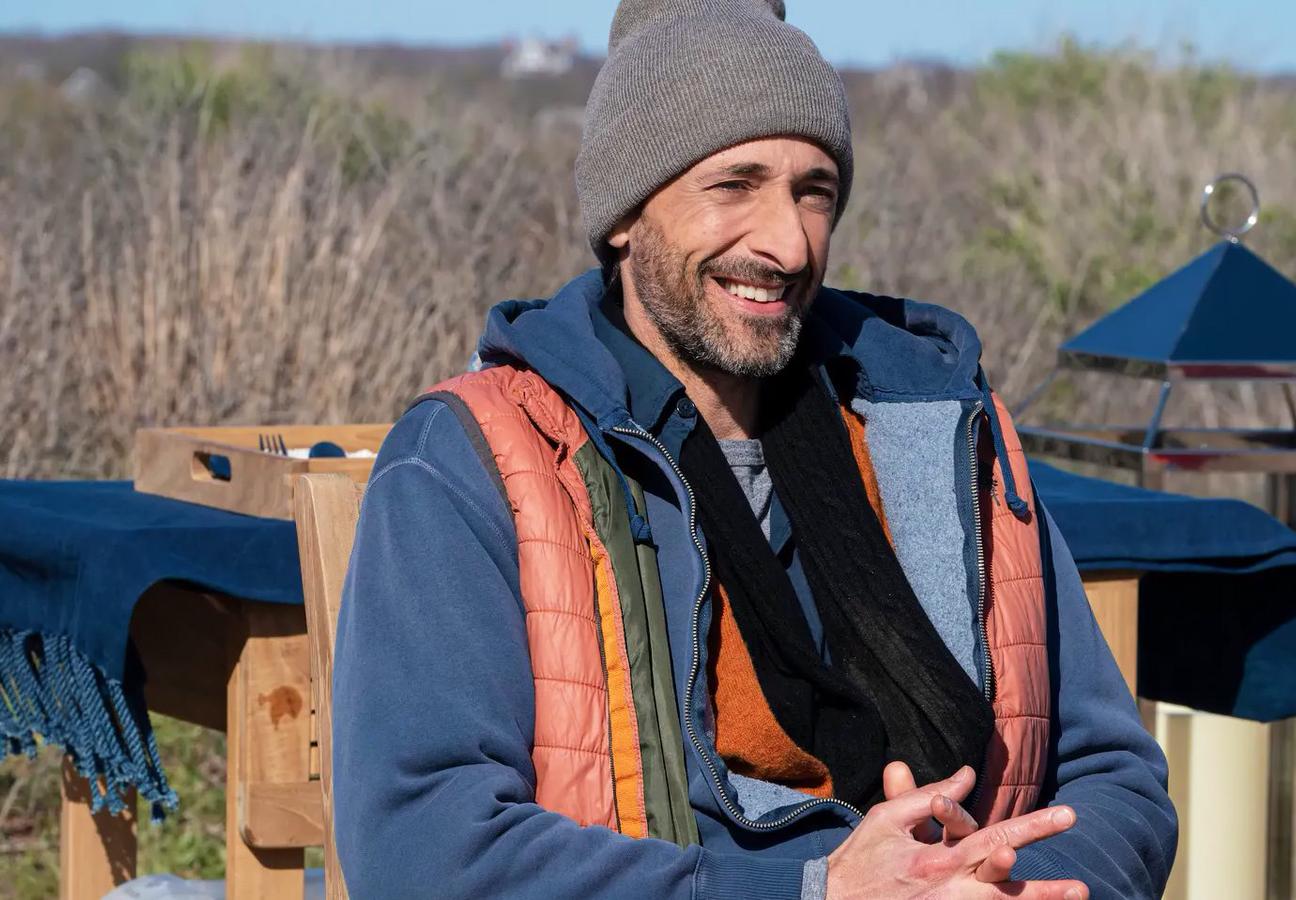
Succession (2021)
Whether Miller, Houdini, Dali or even famed Spanish bullfighter ‘Manolete’, many of Brody’s characters have been footed in reality. But his longest role to date, that of Captain Charles Boone in 2021 horror series Chapelwaite, was anything but. And, based on Stephen King’s short story, ‘Jerusalem’s Lot’, the 10-part gothic epic was a significant undertaking for the actor.
“I’ve seen more King films and adaptations than I’ve read his books,” says Brody on his preparation for the role. “But I have read a few. ‘Carrie’, obviously. ‘Christine’. I actually named my car Christine. The Shining is a favourite film of mine. He’s remarkable. He paints with such a wonderful, vivid palette, and really creates a world. That’s why so many of these filmmakers have found inspiration in his work, and why these adaptations are so successful — because it’s all so rich and textural”.
Chapelwaite, Brody says, was a story that could only be told in a serialised, televised format. And he admits that while “wonderful actors” are now enjoying rewarding opportunities on the small screen, these sorts of parts weren’t available even a decade ago. And he should know. Brody has long been trying to set up television projects, but says that, until recently, producers were in “a different time; a different headspace”.
“But now,” he adds, “we’ve seen so much amazing content created in long-form, episodic storytelling. And, as this developed, I was offered several things — but nothing quite gelled. Then Chapelwaite came along and I thought it was a very interesting opportunity. And a very mature character. You know, I love horror and gothic horror as a genre and visually. I think it’s a fun space to act in. I always loved those kind of films in my adolescence, and it’s still kind of a part of me. That mischievous side of me that either wants to be scared or frighten others. It’s fun”.
Vampires and omens of the apocalypse abound from the off in Chapelwaite, and Brody’s Captain Boone is put through the wringer from episode one. From Szpilman to Peaky Blinders’ Luca Changretta, Brody’s characters are often forced to contend with dark and devastating situations. But he doesn’t find it too difficult to deal with this distress.
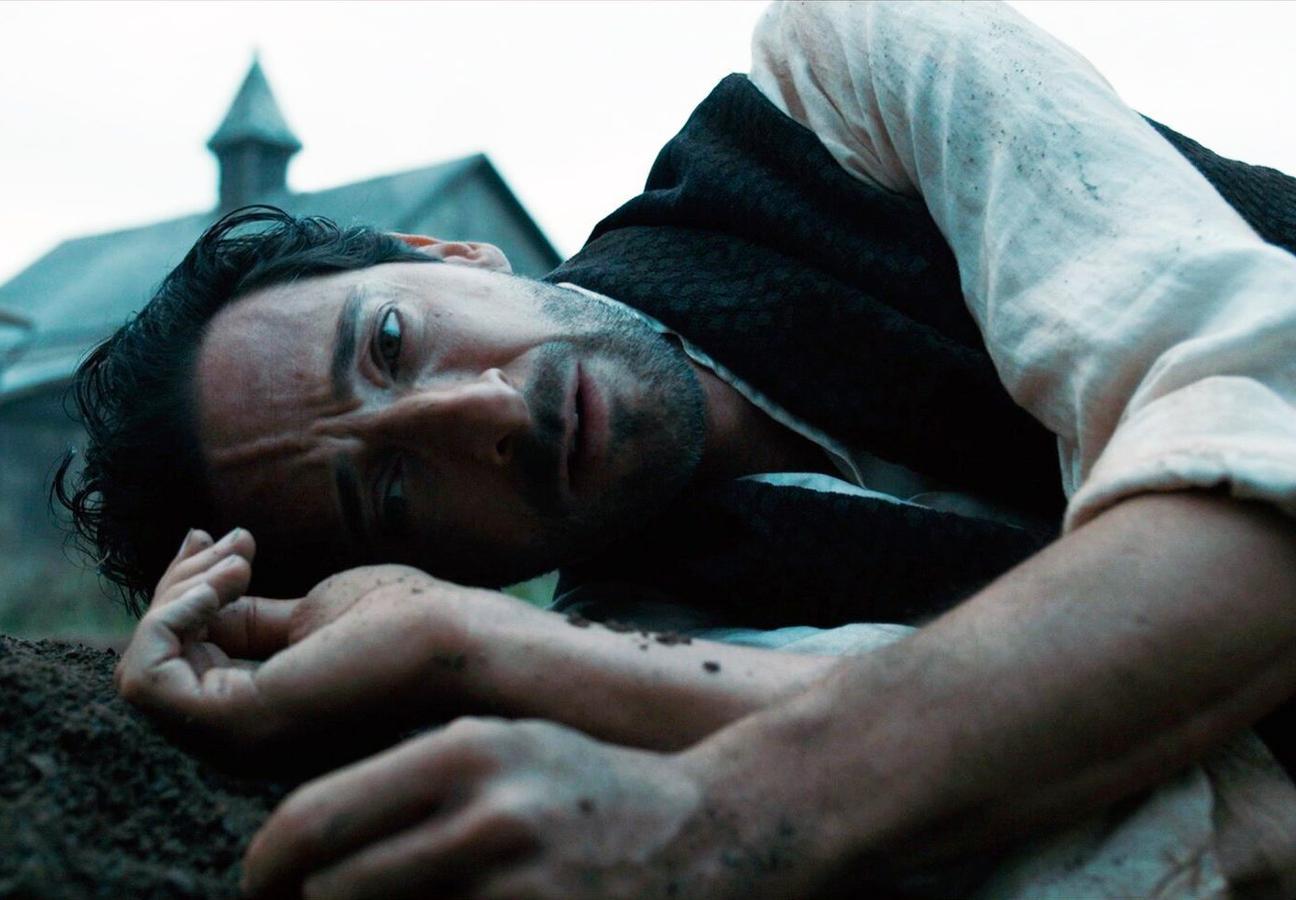
Chapelwaite (2021)
“You have to drop it and run,” says Brody. “Find another character. I’ve spent a lot of my life doing that. I love it. It’s been an interesting shift, actually, in signing up for episodic work. Because, on the one hand, you have this opportunity to have a really interesting, slow-burn arc for a character. But you also have to inhabit that character for such a long time. And I haven’t really done that before.
“I’m used to the, I guess, luxury or freedom of being able to shed the character,” he adds. “Which means that I go really deep, then get out, right? It’s a very different process, and that’s so interesting. But even if you do a play for a long run, once you’re done, you’re basically putting that character down. Most characters, fortunately, you can move on from.”
Which brings us back to those stray dogs. Whether he knows it or not, Brody’s life mission seems to be about giving a voice to the voiceless, or life to the lifeless. For want of a better analogy, he collects strays. From creatures to characters, he picks them up, turns them around and sends them — all the better for knowing him — on their way. He infuses his own life with their problems, aspirations and affectations for a spell, and then he sheds them. But, professionally at least, he still doesn’t have an established, proven way to bid farewell to roles.
“I probably should,” he laughs. “I should have a sage-burning! And, occasionally, I will burn some palo santo and meditate a lot. But it’s not in response specifically to a role. Ghosts of characters do linger, that’s for sure. But I don’t think that’s a bad thing. I think it’s a positive thing, because the responsibility of putting yourself in somebody else’s shoes — whether fictional or not — and honouring their hardships, reinforces your privilege of not having to live with that.
“That helps you evolve as a person and develop a bit more empathy,” he adds, pausing. Before wrapping up and heading back to his art, lets out one long breath. “So it’s all worth it, even if some sadness lingers.”
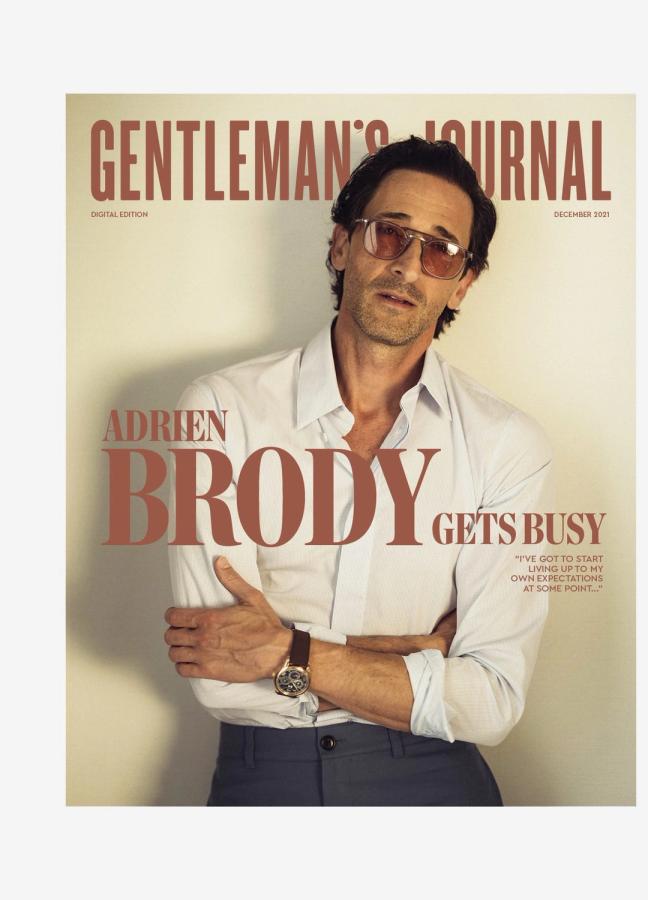
Want more acting interviews? Step inside the peachy, beachy life of Pierce B. Brosnan…
Become a Gentleman’s Journal member. Find out more here.


